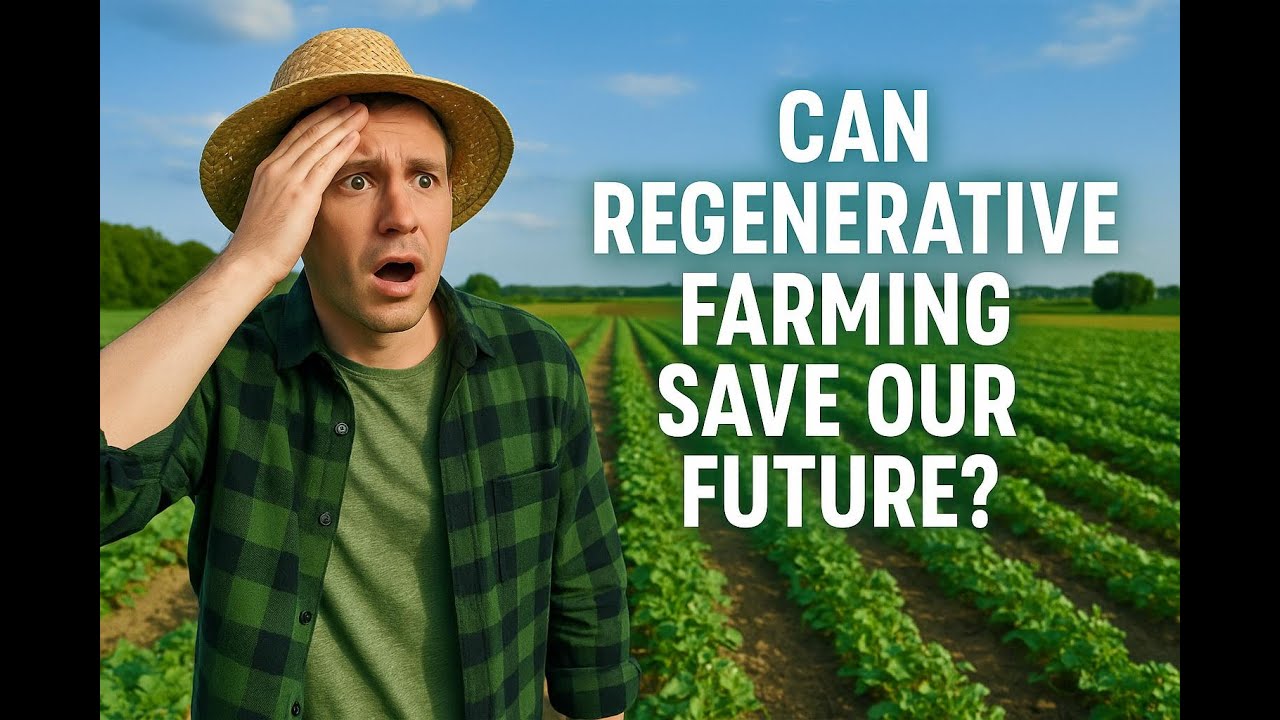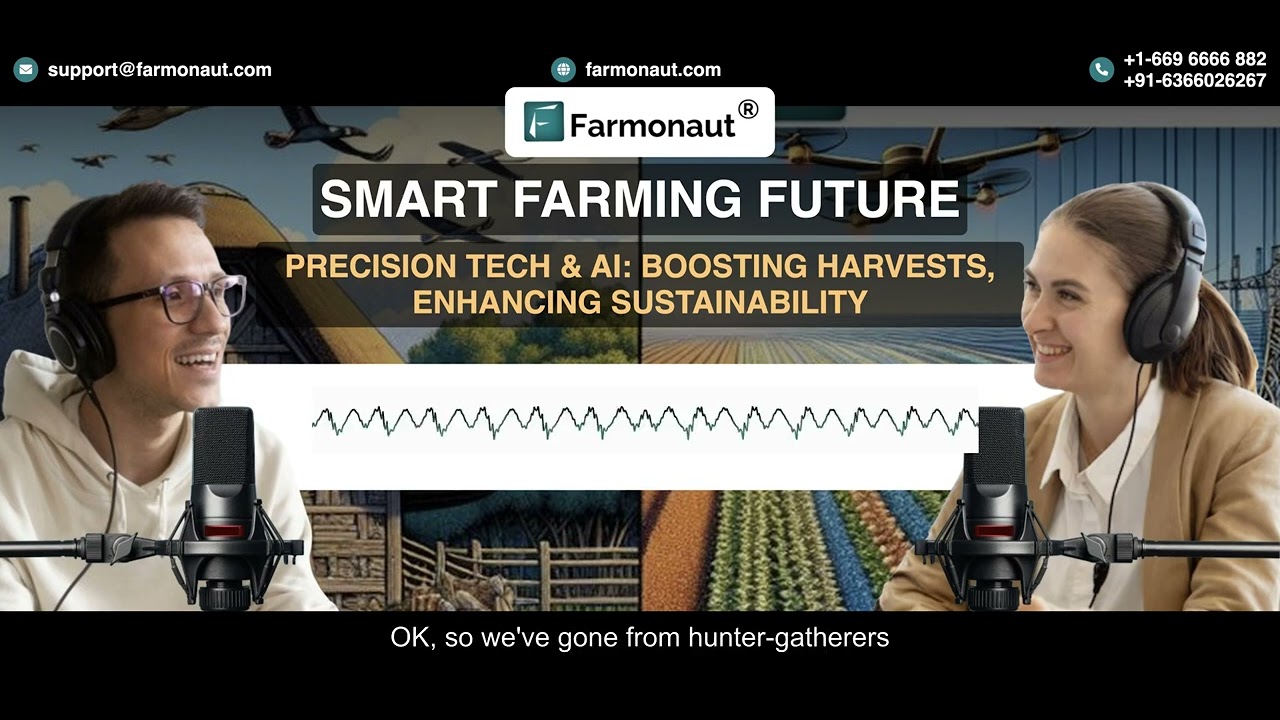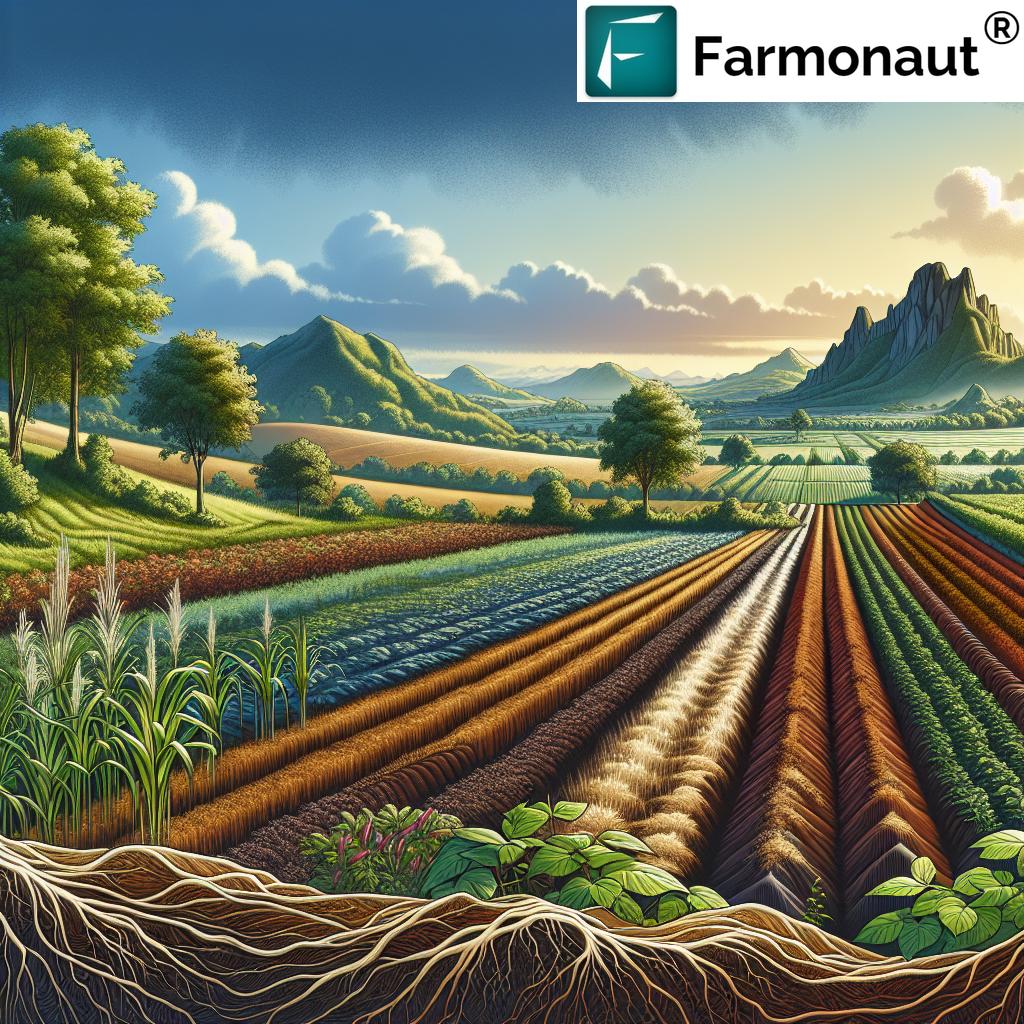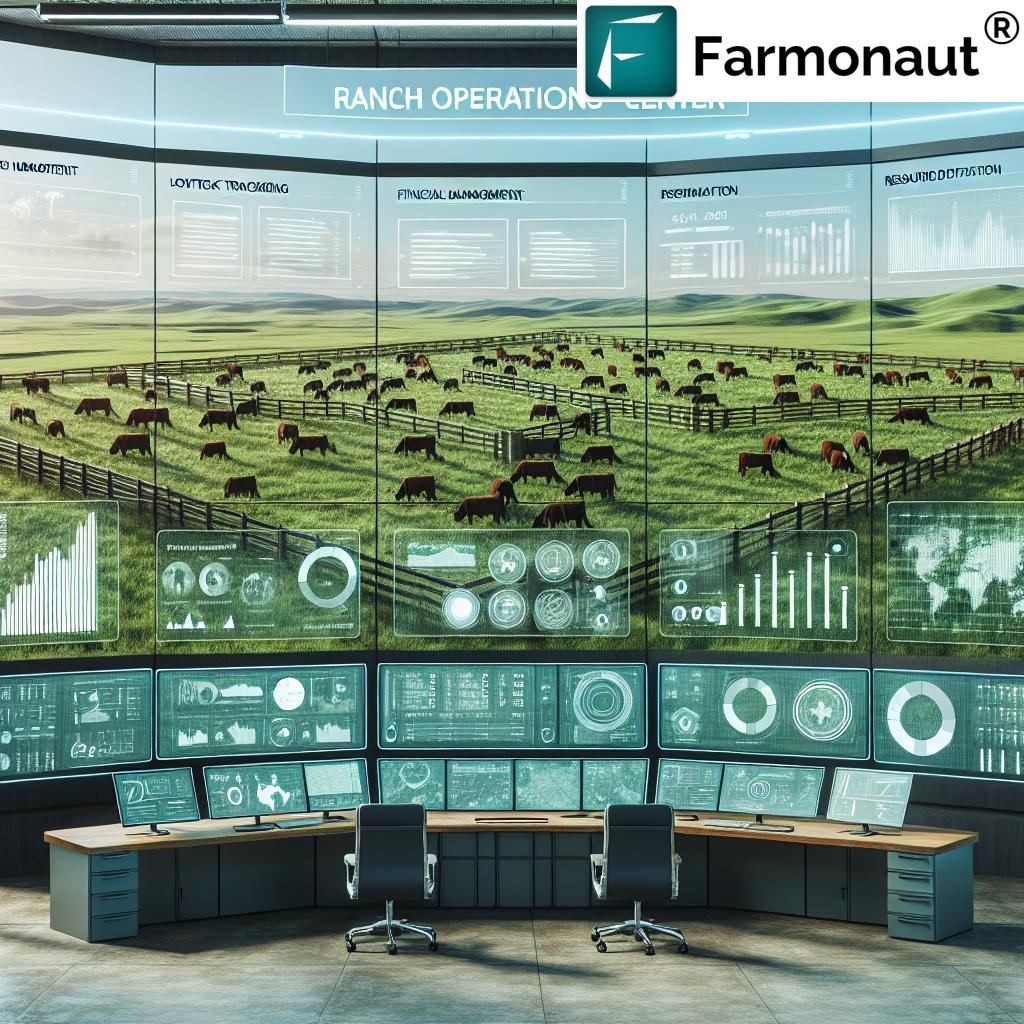Sustainable Farming Courses Online: 7 Ways to Boost Yields in 2025 & Beyond
Table of Contents
- Introduction: The Shift Towards Sustainable Farming
- Why Choose Sustainable Farming Courses Online in 2025?
- Comparison Table of Top Sustainable Farming Courses Online
- 7 Ways to Boost Yields with Sustainable Online Farming Courses
- The Role of Digital & Satellite Technologies in Sustainable Farming Education
- How We at Farmonaut Empower Sustainable Agriculture Education
- Skills for a Sustainable & Resilient Agricultural Future
- FAQ: Sustainable Farming Courses Online
“Over 70% of online sustainable farming courses focus on climate-smart techniques to increase crop yields sustainably.”
Introduction: The Shift Towards Sustainable Farming
In recent years, the global agricultural landscape has witnessed a significant shift towards sustainable practices, driven by the urgent need to address climate change, resource depletion, and food security. As we look ahead to 2025 and beyond, sustainable farming courses online have emerged as a vital resource for farmers, agronomists, and agricultural enthusiasts seeking to adopt eco-friendly agriculture, resilient techniques, and boost productivity for a sustainable future.
The primary focus of sustainable farming is not only to maximize yields but to maintain soil health, conserve water, reduce chemical usage, and promote biodiversity, all while ensuring economic viability for farmers. With increasing pressure on natural resources and a rapidly growing demand for organic and responsibly produced food, the importance of eco-friendly farming practices cannot be overstated.
Sustainable farming courses online present comprehensive learning opportunities for those seeking to boost productivity, safeguard the environment, and adapt to the evolving challenges of agriculture in the digital age.
Let’s discover why these farming online courses are indispensable in shaping the future of sustainable agriculture!
Why Choose Sustainable Farming Courses Online in 2025?
The digital revolution has made quality education more accessible than ever before, even for those in remote and underserved regions. Sustainable farming courses online break down traditional geographical and financial barriers, offering affordable and scalable learning opportunities for learners worldwide.
- Accessible for farmers in remote areas or those facing geographic/financial constraints
- Offer flexible schedules, allowing balancing responsibilities between work and learning
- Provide unparalleled access to global best practices in sustainable agriculture
- Utilize video lectures, interactive webinars, field demonstrations, and discussion forums for deeper engagement
- Cover crucial topics like organic farming, water conservation, soil health, agroforestry, integrated pest management, crop rotation, and climate adaptation
These digital farming courses empower learners to implement locally relevant and globally informed techniques, ensuring sustainability and resilience in the face of climate and market changes.
Comparison Table of Top Sustainable Farming Courses Online
To help you select the right sustainable farming courses online, we’ve compiled a comparison table of leading global platforms and their offerings. This table enables you to identify the key focus areas, duration, ratings, and cost for informed, actionable learning choices.
| Course Name | Platform | Main Topics Covered | Estimated Duration | Avg. User Rating | Estimated Cost (USD) |
|---|---|---|---|---|---|
| Sustainable Agricultural Land Management | Coursera | Soil Health, Crop Rotation, Pest Management | 6 weeks | 4.7/5 | $49 |
| Organic Farming and Sustainable Agriculture | FutureLearn | Organic Production, Biodiversity, Market Access | 4 weeks | 4.6/5 | $59 |
| Agroecology: The Ecology of Sustainable Food Systems | edX | Agroforestry, Soil & Water Conservation, Climate Change | 8 weeks | 4.5/5 | Free / $99 for certificate |
| Climate-Smart Agriculture Techniques | Udemy | Climate Adaptation, Water Use Efficiency, Digital Tools | 10 hours | 4.4/5 | $39 |
| Introduction to Regenerative Agriculture | Udemy | Soil Carbon, Ecosystem Restoration, Carbon Credits | 6 hours | 4.6/5 | $29 |
| Integrated Pest Management | Coursera | IPM, Biological Controls, Chemical Reduction | 5 weeks | 4.5/5 | $49 |
| Sustainable Food and Farming Certificate | UMass Online | General Sustainable Practices, Marketing, Organic Science | 9 months | 4.7/5 | $895 |
Tip: Before enrolling, always review the latest syllabus, check for peer discussion opportunities, and consider if the course offers certificates for professional advancement!
7 Ways to Boost Yields with Sustainable Farming Courses Online
Sustainable farming courses online empower farmers and learners with real-world, actionable knowledge that can transform agricultural practices and outcomes. Here are seven proven ways these courses can help boost yields sustainably in 2025 and beyond:
-
1. Mastering Climate-Smart Agriculture Techniques
As climate patterns become increasingly unpredictable, climate-smart agriculture techniques are crucial for resilient food production. Online farming courses teach adaptation practices like drought-resistant crops, water harvesting, buffer planting, and diversified cropping systems to reduce climate risks.
- Learn integrated water management and soil conservation
- Adopt climate-resilient crop rotation and mixed farming methods
- Access modules on digital platforms to predict weather impacts, plan sowing, and mitigate potential losses
-
2. Enhancing Soil Health and Fertility
Soil health is the backbone of sustainable agriculture. Sustainable farming courses emphasize soil testing, organic amendments, cover cropping, and composting. These practices:
- Reduce the need for chemical fertilizers and inputs
- Improve water retention and crop yields
- Promote soil biodiversity and long-term farm resilience
Integrating carbon footprint monitoring solutions can further support soil health by tracking indicators of soil carbon and organic matter.
-
3. Integrated Pest Management for Reduced Chemical Use
Integrated Pest Management (IPM) modules in farming online courses teach learners to:
- Reduce chemical inputs by relying on natural pest enemies
- Apply targeted interventions only when necessary
- Utilize monitoring tools for early detection of outbreaks
- Integrate biological—rather than synthetic—methods where possible
These strategies reduce crop losses, lower input costs, and promote on-farm environmental health.
-
4. Implementing Organic and Regenerative Agricultural Practices
As global demand for organic food rises, online farming courses offer practical steps to transition to organic and regenerative farming. You’ll learn to:
- Implement certification processes for organic and responsible production
- Restore degraded soils through cover crops, no-till, and agroforestry
- Increase biological diversity and enhance soil carbon sequestration
Utilizing satellite-driven insights, such as those from Farmonaut, optimizes monitoring of organic transitions and regenerative progress.
-
5. Efficient Water Management and Conservation
Water scarcity is a growing threat in agriculture. Sustainable farming courses online address:
- Smart irrigation system design
- Rainwater harvesting techniques
- Precision application based on crop needs
- Reduction of water loss and runoff
These modules equip learners with tools and knowledge to optimize water use, reduce costs, and ensure productivity under stressful climate regimes.
-
6. Leveraging Technology and Data for Precision Farming
Most sustainable farming courses online now incorporate data-driven technologies—drones, sensors, mobile apps, and satellite imagery—to:
- Monitor real-time crop and soil status
- Map input needs for fertilizer, pesticides, and water
- Reduce waste and boost operational efficiency
Our large scale farm management solutions at Farmonaut let farmers and managers analyze field health, plan interventions, and manage resources from anywhere.
-
7. Strengthening Market Access, Traceability, and Premium Certification
Understanding market channels and supply chain management is critical for profitability. Online farming courses address:
- Value addition and certification (organic, fair-trade, eco-labeling)
- Blockchain-based traceability tools for transparency and trust
- Strategies for accessing premium markets and increasing farmer incomes
Our proprietary product traceability system allows agricultural producers and supply chain actors to verify product origins, build consumer confidence, and unlock higher returns.
“Farmers using eco-friendly practices from online courses report up to 30% higher productivity compared to conventional methods.”
The Role of Digital & Satellite Technologies in Sustainable Farming Education
The integration of digital technologies is revolutionizing both sustainable agricultural practices and the way we learn them. Precision agriculture leverages data—often gathered from satellites, drones, and IoT sensors—to optimize every stage of food production, reducing waste and environmental strain.
How Do Sustainable Farming Courses Online Deliver Digital Skills?
- Satellite Imagery & Remote Sensing: Online modules teach users to interpret NDVI and vegetation health maps for soil and crop management.
- Real-time Farm Monitoring: Track crop stress, pest outbreaks, and irrigation needs directly from your mobile device or computer.
- Blockchain & Traceability: Learn secure, transparent record-keeping for certified and responsibly (organically) produced products.
- Data Analytics: Courses cover analysis of field, yield, and market data for smarter, more resilient decision-making.
How We at Farmonaut Empower Sustainable Agriculture Education
At Farmonaut, we are committed to making satellite-driven insights, AI, and blockchain technology accessible and affordable for every user—from smallholder farmers to agribusiness leaders, and governments aiming to boost sustainability.
Our innovative solutions directly support the implementation of lessons from sustainable farming courses online:
- Satellite-Based Monitoring: Real-time, multispectral imaging allows users to monitor crop health, soil status, and field variability remotely—enabling timely interventions and resource optimization.
- AI Advisory System (Jeevn): Receive tailored agronomic advice, weather forecasts, and management tips based on satellite and local field data.
- Blockchain Traceability: Secure, transparent recording of agricultural practices and product journeys from farm to market, uniquely supporting certification and consumer trust.
- Environmental Impact Monitoring: Features like carbon footprint tracking and fleet management tools promote sustainability and operational efficiency.
Our platform is accessible on 


– so you can monitor your fields and access actionable data wherever you are.
For developers and agribusinesses seeking to integrate satellite insights and weather data directly into farm management or advisory systems, our API and developer docs provide scalable, easy-to-use endpoints for digital innovation.
Skills for a Sustainable & Resilient Agricultural Future
As the global agricultural sector rapidly evolves, the value of sustainable farming courses online for long-term productivity and resilience becomes even more evident. Key trends shaping the next decades include:
- Further digitalization of agriculture, with learning modules accessible on phones, tablets, and computers
- Expanded use of artificial intelligence and machine learning for ultrafast, hyperlocal advisory systems
- Renewable energy solutions, such as solar-powered irrigation and battery-powered machinery
- Heightened environmental stewardship, focusing on minimizing carbon, water, and biodiversity footprints in every agricultural decision
- Increased traceability, certification, and transparency to meet consumer demand for responsible, ethical, and organic food
Enrolling in online farming courses is not just about gaining new knowledge—it’s a foundational step in building resilient agricultural systems that can withstand climate shocks, resource limitations, and changing market dynamics.
Whether you’re a smallholder working in a remote village, an agribusiness manager responsible for thousands of hectares, or a policymaker keen to address food security and sustainability at scale—sustainable farming courses online are your link to the future.
Now is the time to join this global movement:
– Learn the latest techniques.
– Apply science-based practices.
– Embrace the digital tools that will define farming in 2025 and beyond.
For expert guidance in monitoring environmental impact, optimizing resource management, and ensuring traceability from farm to fork, discover more at our carbon footprinting and traceability product pages. If you’re interested in loans or crop insurance solutions supported by satellite verification, visit our crop loan and insurance page to get started.
FAQ: Sustainable Farming Courses Online
-
What are sustainable farming courses online and who should enroll?
Sustainable farming courses online are digital educational programs focused on eco-friendly, economically viable, and climate-smart agriculture. Farmers, agronomists, agricultural students, rural entrepreneurs, and anyone passionate about sustainable food systems will benefit from enrolling. -
How do these courses improve yields sustainably?
By teaching soil health, integrated pest management, water conservation, and digital tools, these courses help optimize productivity while reducing input costs and environmental impact. -
Can I access these courses from remote regions or on mobile devices?
Yes! One of the core advantages of farming online courses is their accessibility via smartphones, tablets, and computers—providing flexible learning for those in underserved areas. -
What topics are covered in sustainable agriculture curricula?
Main topics include: crop rotation, organic farming, soil conservation, water management, climate adaptation, integrated pest management, digital farming, supply chain traceability, and more. -
How does Farmonaut complement sustainable course learning?
We provide real-time satellite monitoring, AI-driven agronomic advisory systems, resource management, fleet tracking, and impact tracking tools—helping you implement, measure, and optimize the practices taught in your courses. -
Are there opportunities for professional certification?
Many platforms offer certificates upon completion, boosting employability and credibility in the sector. -
How can I get started with Farmonaut services?
Download our web app, Android app, or iOS app to begin your data-driven sustainability journey!
Conclusion: Cultivating a Greener, More Resilient Tomorrow
Sustainable farming courses online are at the heart of transforming the world’s food systems. Their accessibility, breadth, and integration with the latest digital and satellite technologies make them indispensable for every learner committed to sustainability, resilience, and productivity in agriculture.
As digital infrastructure expands and awareness grows, enrolling in farming online courses will be essential for those who wish to responsibly shape the agricultural landscape of 2025 and beyond. Let’s boost our yields, safeguard the planet, and ensure food security—together!
Ready to transform your farm? Explore sustainable farming courses online and discover how our tools at Farmonaut can help you monitor crops in real-time, track environmental impact, and drive your sustainable future.

















